After working with thousands of sellers around the globe for 20+ years, I’ve discovered that few sales reps conduct business value conversations with their buyers. This is despite the reality that value selling improves margins, close rates, and customer satisfaction better than any other sales strategy.
Reps who speak in terms of business value are among their organization’s top performers. Those who don’t leave a lot of money on the table, significantly reducing their company’s revenue stream.
Consider these statistics that show the importance of having business value conversations:
- The #1 reason sales reps don’t achieve quota is because they don’t quantify and communicate the unique business value of their company’s solutions. (SiriusDecisions).
- 58% of sales opportunities end in no decision or doing nothing. (Qvidian) A value conversation and solid business case can make all the difference here.
- 51% of closed deals go to companies with excellent business value/ROI programs. (CIO Insights)
- 30% of the sales cycle can be reduced with business value quantification discussions. (IDC)
So why do so few sales reps sell based on value? Here are the top five barriers I see that inhibit sales reps from entering into business value conversations that result in more sales.
Barriers to Value Conversations
How many of these obstacles do you recognize in your organization? How much are they impacting your bottom line?
- Selling too low.
By that I mean having conversations with lower-level staff who lack decision making authority. These individuals are typically more interested in the product than the case for change, and the associated outcomes that lead to increased business value. Sales reps need to call on real potential buyers who understand the organization’s needs and insist on seeing the solution’s business value before they buy anything.
- Entering the process too late.
If you’re late in joining the buyer’s journey, you’re playing defense. You’ve lost the advantage of leading a value conversation, and are likely competing with other alternatives based on features and functions in a last-ditch effort to win the deal.
Sellers need to fill their pipeline with more opportunities in which they can shape the buyer’s perspectives earlier in the journey. That’s where your reps can develop the urgency to act and the case for change with a solid business value proposition.
- Not understanding solution use cases.
Sales reps often don’t understand customer use cases, and the associated business value outcomes when the customer is enabled with their solution. They need to ask better questions to determine why, where, and how the customer should be harnessing their solution, and then paint a clear and compelling vision of the value it delivers.
- Unable to translate operational and emotional value into business value.
By moving the conversation beyond features and functions, sales reps can instead focus on operational and emotional benefits. A cybersecurity firm, for example, can talk about mitigating the risks, heartaches, and headaches of data breaches. Or about improving staff efficiency so IT spends less time chasing down security alerts at odd hours. And how their solution tackles infected devices to minimize end-user disruption and optimize workplace satisfaction.
But there’s one more step. Can they translate these operational and emotional benefits into business value benefits? Maybe. This will come easy to a financially-minded rep, but not to one who doesn’t think in financial terms.
- Lacking a financial mindset.
Many sales reps, especially more junior staff, don’t think in financial terms the way the decision-makers at their target accounts do. They are not in-tune with the business side of the value proposition, which is so critical for helping prospects connect the dots in creating a case and urgency for change.
Sales reps who have mastered a financial mindset are high performers that rise to the top of their organizations. In fact, about 25% of today’s CEOs come from sales and marketing. By being financially-minded, these successful executives are on the same wavelength as other business leaders and economic decision makers.
3 Strategies for Enabling Value Conversations
There are a host of ways to help reps proactively enter into business value conversations. Here are my top three initiatives to assist them in turning the corner:
- Help sales reps think financially.
Invest in basic financial training so your sales reps speak the same language and share the same mindset as their target buyers. Even better, create a training program with customized content that teaches reps to think about the target buyers’ objectives, challenges, KPIs, and how your solution impacts them, as well as the associated business value your solution has in the target buyers’ world. - Enable sales reps with customer-facing tools.
A few handy tools, implemented over time, will make it easier for reps to initiate business value conversations. You could start with an informative “money slide” or infographic that shows buyers how your solution increases revenue, reduces operational costs and alternative capital investments, and delivers strategic value. Customer success stories and whitepapers are helpful resources for showing proof of business value. And you can build a quick value calculator that requires just a few inputs and produces realistic output a customer can understand and believe in. - Back them up with value engineering support.
Many larger enterprises invest in staff and robust processes and tools to help sales reps accurately assess the customer situation, and develop a more comprehensive and credible CFO-ready business case. A solid business case increases the likelihood of closing the deal, especially if the deal size is substantial. For smaller firms with more moderate deal sizes and less frequent engagements of this type, outsourcing the development of value selling tools and processes is the best approach.
Conclusion
Take steps now to eliminate barriers to business value conversations and empower your sales reps with value selling tools, training, and technology. By combining value selling with more productive sales conversations, you can connect, close, and accelerate your revenue.

Resources
Connect with guest author Bruce Scheer on LinkedIn.
Join the Value Selling for B2B Marketing and Sales Leaders LinkedIn Group.
Visit the ROI Selling Resource Center.














